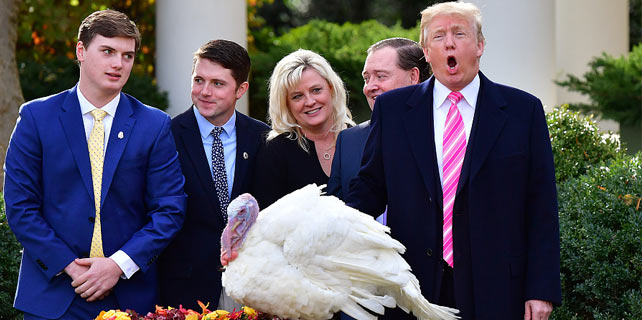'Competition with cooperation' a sensible path
China-watchers in Washington have lamented that there hasn't been a presidential speech on China for some time. So the Brookings Institute gathered a half-dozen experts and asked them to put themselves in the shoes of the national security advisor and prepare such a writing.
Whether or not US National Security Advisor H.R. McMaster would buy their premises is another matter, but the discussions led by Brookings Vice-President Bruce Jones on "Avoiding war: Containment, competition, and cooperation in US-China relations" are indeed interesting.
Some of the points by the "speechwriters" are insightful; others are just implausible.
According to a report released by the Washington-based think tank on Nov 21, Jones asked seven senior scholars to put themselves "in the mindset of the national security advisor advising a president on delivering a speech on China".
While most of them underscored the need to cooperate with China and clearly define what the US interests are in its relationship with Beijing, Robert Kagan, a senior fellow with the Project on International Order and Strategy at the Brookings, saw "conflicting interests".
"My attitude toward China is do well economically, but you cannot use your military to expand your power position in the region," said the author of the 2012 book The World America Made.
"Is that fair? No. Is there any justice to that? No," he said, as if in a monologue.
"We get the Monroe Doctrine and you don't. That's just the way it is. I'm sorry."
I believe the overbearing "the way it is" approach of Kagan is outrageous to many in China. He appeared to believe in the logic that when there is strength, hegemony ensues, and he proposed ramping up US military capacity.
While there may be a lack of a clear-cut policy speech on China on the US side, President Xi Jinping has made his point on hegemony clear in speeches in New York, Geneva and Beijing.
China will never waver in its pursuit of peaceful development; Xi said in Geneva in January, just before US President Donald Trump was inaugurated.
"No matter how strong its economy grows, China will never seek hegemony, expansion or sphere of influence," Xi said at the United Nations Office at Geneva, re-emphasizing what he said at UN headquarters in New York on Sept 28, 2015.
The point was further highlighted in Xi's address at the crucial 19th National Congress of the Communist Party of China last month.
Cheng Li, director of the John L. Thornton China Center at Brookings, said Xi recently has said that there are a thousand reasons that the US and China should work together - and no reasons for the two sides to fight (or "no reasons for the relationship to break", in Xi's words).
"I think our president should probably take a similar view," Li said.
Mira Rapp-Hooper, a senior fellow at Yale's Paul Tsai China Center, said there's no question the China-US relationship has to be some mix of real competition and meaningful cooperation, with "real competition" existing in security issues in Asia, where she said the interests of the US are not "quite clearly defined".
Also, the US has yet to come up with a strategy for how it should react to China's Belt and Road Initiative (BRI).
"And it's not clear to me that that's a zero-sum game," she said. "There may well be places where our interests are complementary."
David Dollar, another senior fellow in the John L. Thornton China Center, said "competition with cooperation" is a good framework.
"I see cooperation largely in terms of efforts to reform global institutions like the WTO, the IMF, the multilateral development banks, and that's where cooperating around the BRI comes in."
Jonathan Stromseth, who holds the Lee Kuan Yew Chair in Southeast Asian Studies in the Center for East Asia Policy Studies at the Brookings, said some American companies are already trying to win BRI contracts.
US firms also could look at what's coming in regional infrastructure in the future and try to calibrate their business plans to align with those opportunities, the senior fellow said.
Other points that the China-watchers produced on behalf of McMaster included those of Ryan Hass, a David M. Rubenstein fellow at the Brookings, who underscored the need to "find a way to live with an ascendant China that is aggressive in some areas, and work to create a durable, constructive relationship with them".
It is unclear if or how McMaster would benefit from the experts' points. But the general said, "The comprehensive policy toward China would be to identify areas where we can cooperate effectively on areas of mutual interest and concern," he told the CGTN earlier this month.
Contact the writer at huanxinzhao@chinadailyusa.com
















